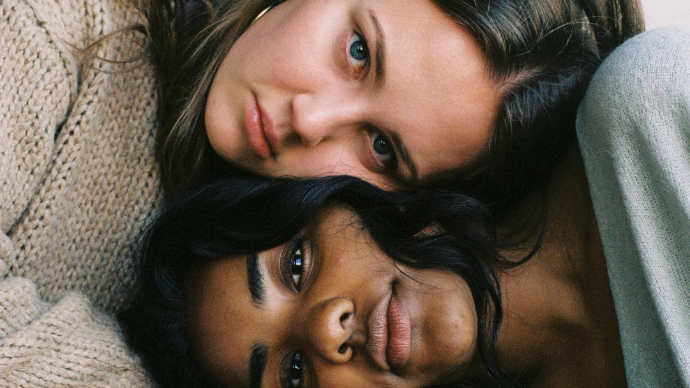The things I love most about my friends have nothing to do with what they look like.
Let that truth sink in.
I know deep in your heart, dear reader, you feel this way too.
But despite that heartfelt truth, weight and appearance take a front seat in most of our lives, driving or crushing our self-confidence.
Women and girls are literally not participating in their own lives, opting out of important life events because they don’t believe they look good enough.
As a Be Body Positive Facilitator and ambassador for The Body Image Movement, I’ve observed in media, especially social media, that there’s this misconception that the goal of heathy body image is for us to eventually love the appearance of our bodies, “flaws” and all.
But “body image work has very little to do with our outside appearance because the reality is, even if we come to love the appearance and shape of our bodies now, they are ever-changing” says clinical psychologist Dr. Colleen Reichmann.
Fostering a healthy body image involves talking openly about the realities of living in a human body. By teaching our young girls to normalize “normal” bodies by embracing diverse and changing bodies and acknowledging the complexities of human health, we can push appearance where it belongs, to the back seat and get back to living fully.
I encourage you to share these four body truths, ones I wish I’d learned as a young girl, with your girls (and with everybody).
The 4 Body Truths You (and Every Girl) Should Know
“Precious girl, your body is supposed to look different.”
Tell her she was born with a unique body. Encourage her to embrace the differences in her own body and respect all bodies. Diversity is part of the human experience.
Her body is not flawed or imperfect. There’s no one “right” way to have a body.
And be upfront with her. Share that our culture will try to convince her otherwise, but she can resist.
“Precious girl, your body will change.”
Explain to her that her body will go through life transitions: puberty, maybe pregnancy, perimenopause, menopause.
Tell her what to expect from her body, such as the average child gains 40 pounds during puberty, and that it’s good and normal. And that bodies change for all kinds of reasons: injury, illness and just living. Teach her that our culture demonizes aging, but she can celebrate it.
And that “no matter what, if we are privileged enough to age, we will all wind up in bodies that society has deemed as ‘not the beauty standard’ anyway,” says Reichmann.
At the end of her one precious life, no one is going to stand up at her funeral and remember her for her waist size. The most attractive thing about her should have more to do with her heart and how she treats people.
“Precious girl, your body is not a machine, it’s a miracle.”
Tell her that her body has innate wisdom, sending her messages to meet its needs for self-care, and for her to listen.
Help her separate her weight from her wellness.
Warn her of diet culture’s false and simplistic definition of health and to resist comparing herself to social media influencers’ before and after images and “eat like me, move like me, look like me” messaging.
Remind her that even if everybody ate the exact same foods in the same amounts and exercised the same, we’d all look vastly different from one another — again, honoring body diversity.
Tell her the importance of having a healthy relationship with food. Tell her exercise is a celebration of what her body can do, not a punishment for what she ate. Talk openly with her about the dangers of dieting and “clean” eating. Labeling food as “clean” or “dirty” is just dieting by another name. In a large study of 14- and 15-year-olds, dieting was the most important predictor of developing an eating disorder compared with those who didn’t diet according to National Eating Disorders Association. And maybe you didn’t even know this, but discuss with her that eating and exercise disorders come in all body sizes, again, according to NEDA. Yes, read that again.
Explain that she’ll be bombarded by advertising messages trying to profit off body insecurities that the billion-dollar weight loss industry created. It’s about profits, not health.
And share that human health should be embraced with compassion as complex and multifaceted.
“Precious girl, fall in love with your life.”
Ultimately, teach her that the goal of healthy body image isn’t to love our “flaws” but to be able to live out our values in such a way that appearance takes more of a back seat.
“The real goal is to create a life that feels bigger than appearance. It’s to be able to live out your values in such a way that you are in your life, versus staring at it on the periphery,” says Reichmann. “This likely means having some days where, yeah — you don’t love the outside of your body as much as other days. But the goal is for you to continue living out your values with very little impediment on those days as well.”
And finally, take some time to share with your daughter the things that you most love about her and her friends that have nothing to with appearance.
We have more to offer this world that has zero to do with our bodies. Empower your daughter to be more than a body.
“You have more to do than be weighed down by pretty or beautiful. You are a fiery heart and a wicked brain. Do not let your soul be defined by its shell.” — Unknown
To your happiness and health,
- Tanya
♡ Ready to transform your relationship to food and your body? Get started!
(This article was originally published in the October 27 edition of the Jackson Hole News and Guide Weekly.)


